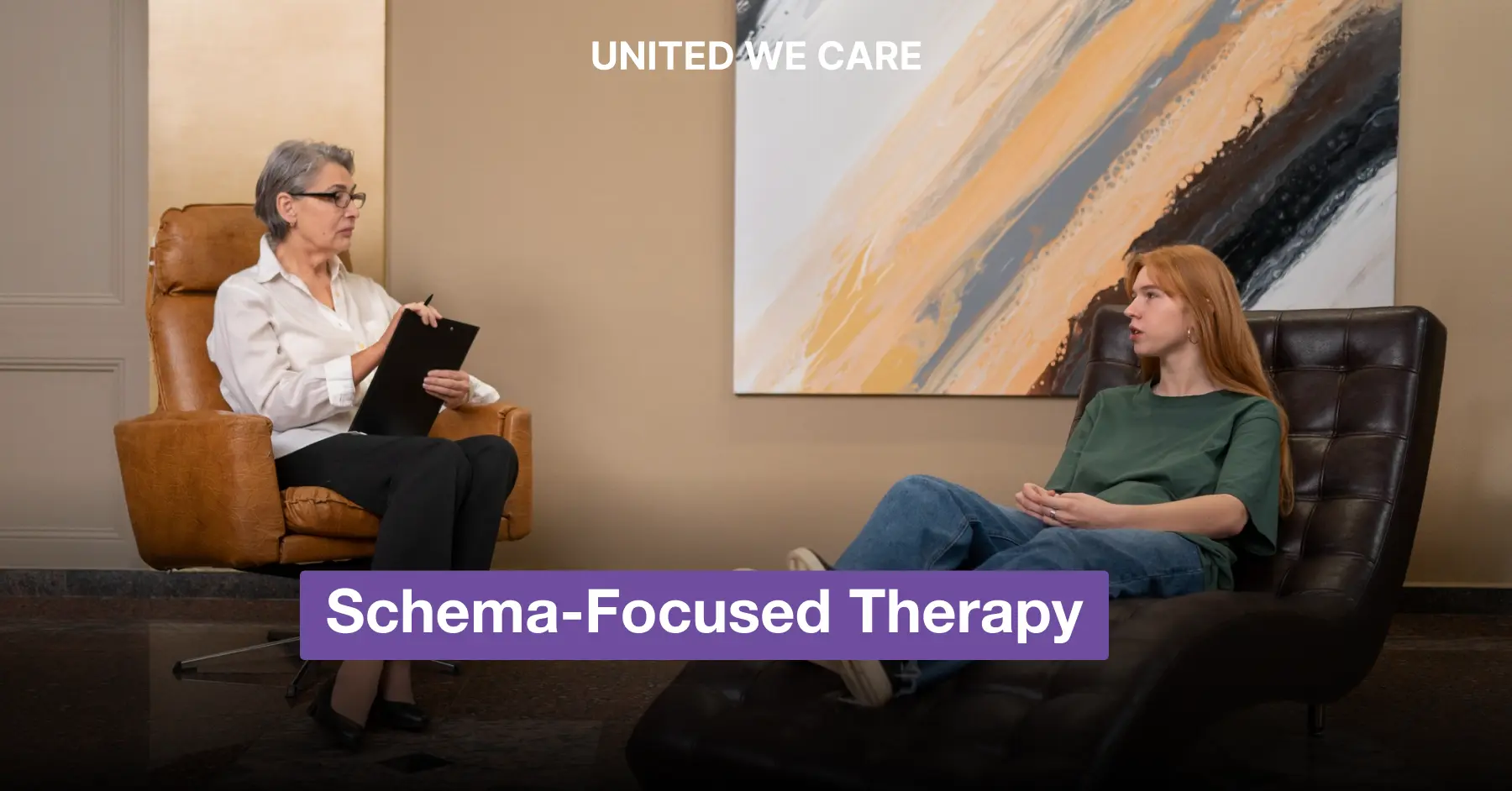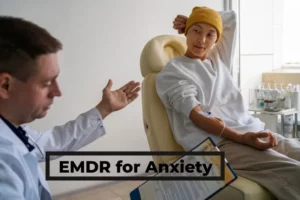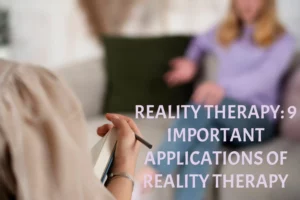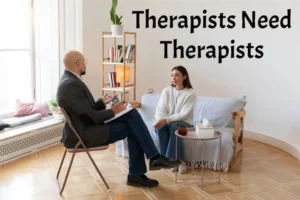Introduction
People use frameworks to make sense of either their surroundings or themselves. These types of frameworks are known as Schemas. Firstly, Schema therapy is a kind of talk therapy based on these schemas. Additionally, Schema therapy’s main goal is to eliminate an individual’s unhealthy or unrealistic schemas. Along with this, replace them with healthier and more balanced ones.
What is Schema Focused Therapy
Schema therapy can help you change unhealthy patterns holding you back. This approach addresses the negative schemas and thoughts that shape your worldview. Schemas usually develop from unfulfilled childhood needs. In addition, they tell you to cope with your problems in self-defeating ways. Through this, schema therapy aims to replace these negative schemas with a self-supporting outlook.
However, the therapist-patient relationship is a key component here. Together, you compassionately look at your past problems and hurts. The therapist helps you understand where your schemas come from. Equally, they guide you to face your childhood experiences with the use of skills. You learn new ways to relate to not only yourself but others as well. The therapist helps you challenge your old assumptions and also helps you create new and positive beliefs as well.
While not easy, schema therapy can transform behaviors over time. An individual can build resilience against falling into old patterns and develop feelings of strength and freedom. In 1994, Dr. Jeffrey Young developed schema therapy to treat personality disorders. It has expanded to help with many conditions.
Schema-focused Therapy Near Me
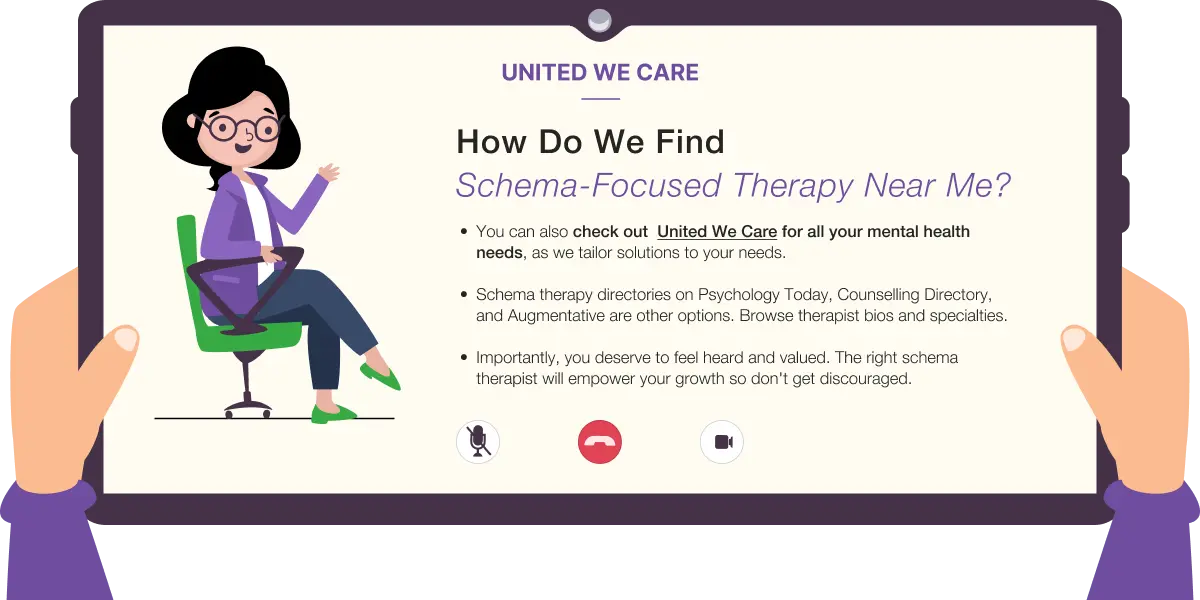
Searching for a schema therapist? It can feel overwhelming, but resources exist to connect you to the right professional.
- You can also check out United We Care for all your mental health needs, as we tailor solutions to your needs.
- It is important to note that the International Society of Schema Therapy’s website has a therapist finder. Enter your location to discover providers nearby. Peruse profiles to get a feel for different practices. Look for someone you resonate with.
- Schema therapy directories on Psychology Today, Counselling Directory, and Augmentative are other options. Browse therapist bios and specialties. Along with this, see who incorporates schema techniques into their approach. Make calls to ask questions and determine fit. The search takes effort but yields hope.
Importantly, you deserve to feel heard and valued. The right schema therapist will empower your growth so don’t get discouraged. With some research, you’ll find a practitioner suited to guide your healing journey. Relief from old schemas is within reach.
Is Schema Focused Psychotherapy Similar to Schema Focused Therapy
Schema-focused Psychotherapy is just another term for schema-focused therapy. Both refer to the same method of therapy. While it is pretty similar to cognitive behavioral therapy in some ways, schema therapy has its key differences. Similar to CBT, schema therapy tests and challenges unhealthy schemas, like an individual’s ingrained patterns of thinking.
- However, schema therapy puts more emphasis on the therapist-patient relationship.
- Moreover, it focuses more on exploring the childhood origins of the schemas. Importantly, emotion-focused techniques are also commonly used.
- Schema therapy integrates elements from other approaches as well. The focus on early life experiences and the therapeutic relationship aligns with psychoanalysis. Besides, attachment theory is also used to inform schema therapy.
- Processing emotions is central, reflecting the influence of emotion-focused therapy.
- Schema therapy draws its influence from various schools of thought. Furthermore, it blends cognitive, behavioral, psychoanalytic, attachment, and emotion-focused elements.
This integrated approach targets schemas through multiple means. Understanding these connections to other therapies can shed light on the schema process.
Why Do We Need Schema-Focused Therapy
- Individuals who usually feel trapped in patterns that undermine their happiness can see great benefits from schema therapy.
- Also, this approach helps identify unhealthy schemas—engrained thought patterns shaped by unmet needs.
- In addition, your schemas might have roots dating back to your childhood but still impact you now. Schema therapy just shows how early experiences can form your schemas.
- Furthermore, with compassionate support, you can understand your coping styles. Not just this, but also gain insight into how schemas affect your well-being, relationships, and functioning.
- Emotion-focused techniques used by your therapist will help you address past traumas. As schemas transform, you will start to develop new inner strength.
- Along with this, your self-defeating behaviors shift to self-nurturing habits. Schema therapy also helps you build satisfying connections.
- Schema therapy replaces schemas and ineffective coping with an inner voice of wisdom and care.
You create a solid identity that is not built on others’ approval. If your schemas obstruct thriving, this therapy may offer keys to freedom.
Efficacy of Schema-Focused Therapy
If you’re considering schema therapy, know that research shows its benefits, especially for personality disorders.
- Studies confirm schema therapy helps treat borderline personality disorder. It also greatly helps in the improvement of symptoms and problematic schemas.
- Moreover, for other conditions like anxiety, OCD, and PTSD, schema therapy has also been shown to be advantageous.
- In this order, disorder-specific symptoms start to diminish. One study found that trauma survivors regained power over PTSD triggers after a schema-focused treatment. However, more evidence is still needed. Schema therapy is relatively new, originating in the 1990s.
- In comparison to modalities like CBT, larger-scale research remains limited to Schema Therapy.
- Few studies examine schema therapy for mood disorders or in group settings.
- Its efficacy across diverse populations awaits further exploration.
- While very promising, schema therapy requires a more rigorous investigation. Additionally, it is important to note that challenging your past traumas and building new schemas may ease your suffering.
Though research continues, schema therapy could already start changing one’s relationship with oneself—from self-judgment to self-compassion.
Conclusion
To sum it all up, an individual who might feel trapped by their unhealthy patterns, which stem from childhood or past traumas, can really see Schema Therapy as a hope for change. Additionally, this approach targets self-defeating schemas and coping styles arising from unmet needs or trauma. With proper compassion and skill, the therapist helps you understand how your past informs your current struggles. Importantly, your therapist will help you challenge your old assumptions. Cognitive, behavioral, and emotion-focused techniques are also used. Furthermore, as you process difficult feelings, new and positive feelings start to develop.
Altogether, research shows schema therapy is effective, especially for personality disorders. More studies are needed, but the findings are really promising. If you resonate with schema therapy’s goals, online and in-person options exist. Check directories like the International Society of Schema Therapy, Psychology Today, Counseling Directory, or Augmentive. Virtual platforms like United We Care also connect you to qualified therapists worldwide.
References
- J. E. Young, A. Arntz, D. P. Bernstein, et al., “Towards a reformulated theory underlying schema therapy: Position paper of an international workgroup,” Behavioural and Cognitive Psychotherapy, vol. 47, no. 4, pp. 361-377, 2019.
- M. J. L. van Vreeswijk, J. Broersen, and M. Nadort, “Schema-focused therapy: An integrative approach to psychotherapy supervision,” Journal of Clinical Psychology, vol. 64, no. 8, pp. 904-917, 2008.
- J. E. Young, “Case of Silvia: A schema-focused approach,” Journal of Psychotherapy Integration, vol. 4, no. 1, pp. 3-37, 1994.
- A. Arntz and H. Jacob, “Schema therapy for borderline personality disorder: A comprehensive review of its empirical foundations, effectiveness and implementation possibilities,” Clinical Psychology Review, vol. 32, no. 3, pp. 137-147, 2012.
- M. J. L. van Vreeswijk and M. Bateman, “Schema focused and mentalization based therapy – An integrative proposal,” Journal of Contemporary Psychotherapy, vol. 46, no. 4, pp. 219-229, 2016.

